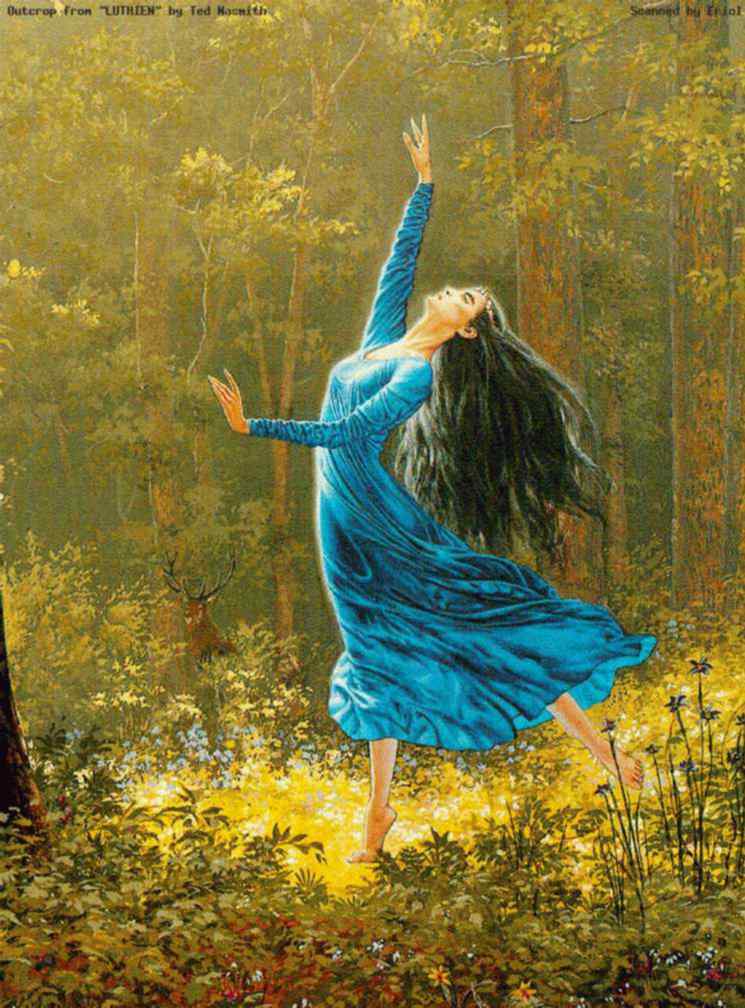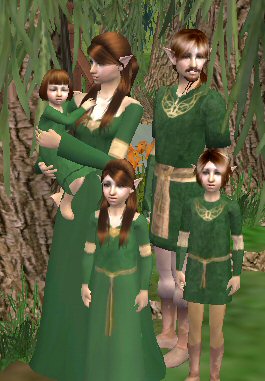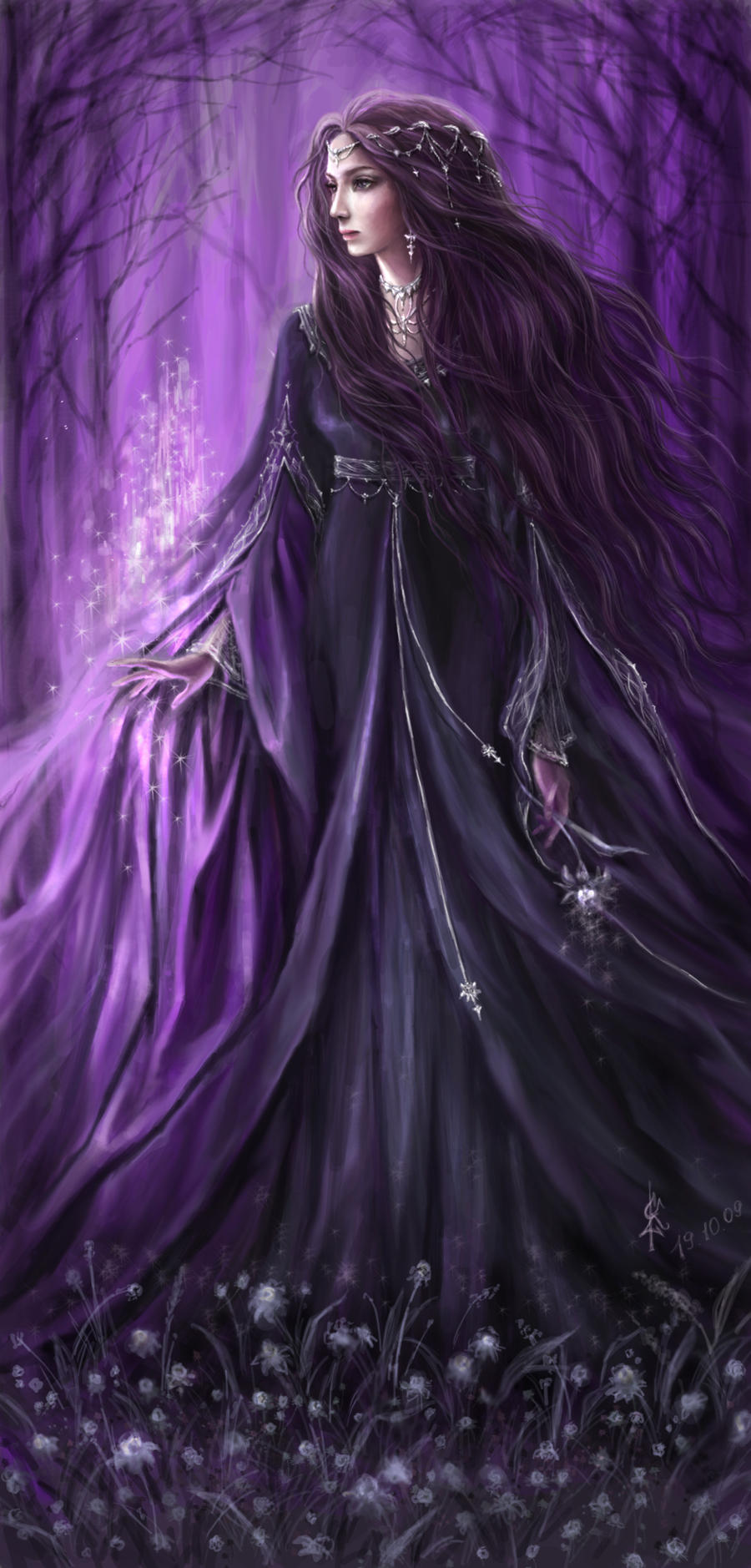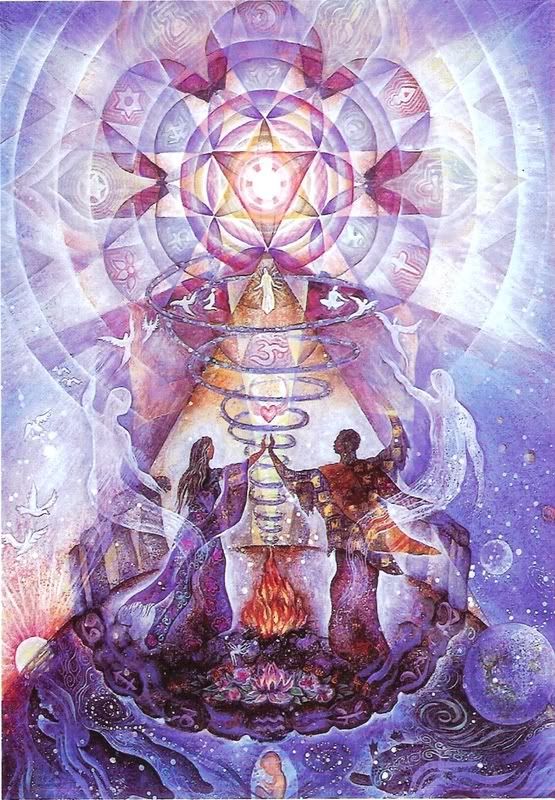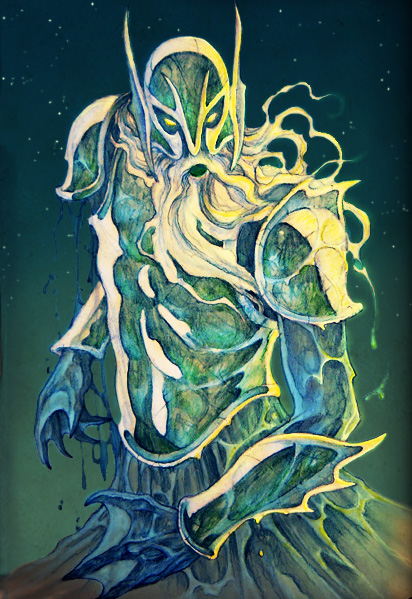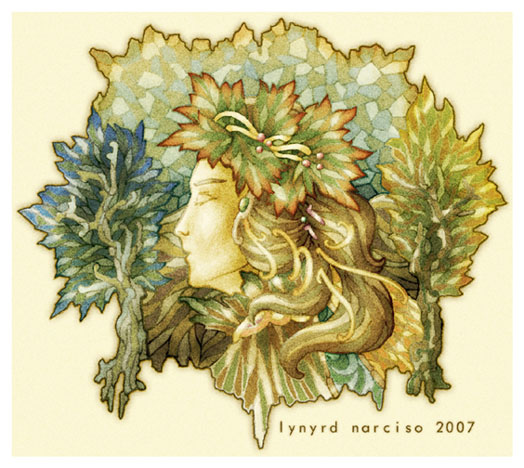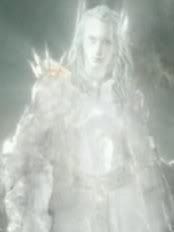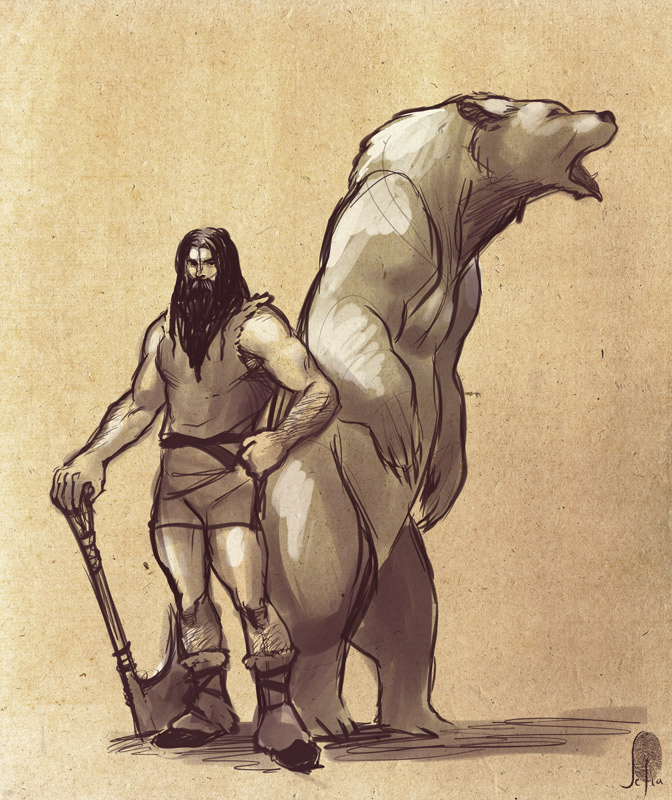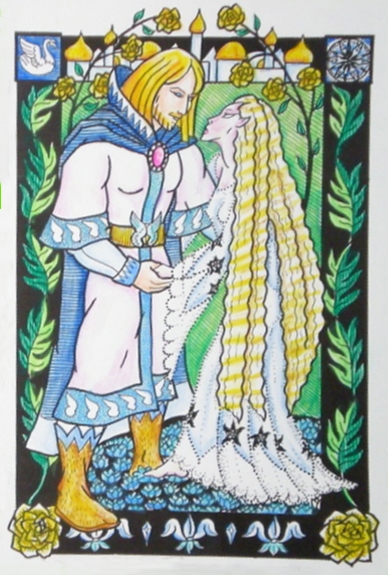Our Elven RP leader, Maralee Greenwood, teaches that The Silmarillion states that the Noldor do not speak Melkor's name and that JRRT wrote "The Fallen One" for them to use instead. Quoting Valaquenta, "Of The Enemies":
"Last of all is set the name of Melkor, He who arises in Might. But that name he as forfeited; and the Noldor, who among the Elves suffered most from his malice, will not utter it, and they name him Morgoth, the Dark Enemy of the World."This could justify the Noldor calling the bad guy Morgoth from the very beginning. Since the Noldor had not suffered anything unusual of his malice by the Noontide of Valinor, we play that the elves call The Bad Guy neither "Melkor" for fear of the power of the name, nor "Morgoth" for it hasn't been coined yet.
The phrase "Fallen One" never appears in Tolkien's the Silmarillion. The word "fallen" appears less than 20 times, and never in reference to Melkor. Still, the elves might indeed use "Fallen One" as the Quenya lantë (a moral fall) suggests "Lantwë". Of the Ainu, though, only Aulë claims "I have fallen into folly" in his chapter. Hearing the useful "Fallen" or "Lantwë" would make Aulë, fallen yet forgiven, regretful.
- ~ "Lantwë", Quenya for "The Fallen One"
- ~ "Límilawë" for "The Chained One"
- ~ "i túra nancar" for "The great destroyer"
- ~ "Morier" for Dark One,
- ~ "Feuyaer" for the disgusting one
- ~ "Ksher" for the Evil one
- ~ "Oklem" or "Roklem" are Melko and Melkor backwards, so as to mimick his feature that he never did anything on this own but only corrupted and distorted what others had made before, so we do not give him a "new" name but rather take the "old" one and corrupt it ourselves.
- ~ "First of tyrants", Quenya has no word for tyrant. Perhaps "First Night Lord", or "First Slave Lord" will do: Lómëheru-minya or Mólheru-minya
- ~ "Sourvoice", as stink- holwë + voice óma = "Holoma"
- ~ "Badsong" as bad Olca + song linde = "Olcalin"
- ~ "Shouty" or "Shouter" as "Ramando"
- ~ "The Discordant" deserves some thought:
Dis-cord"Discord" isn't in Quenya wordlists, nor most above, but these are:
~Lack of agreement among persons, groups, or things.
~Tension or strife resulting from a lack of agreement;
~strife, dispute, war, dissension.
~confused, harsh or inharmonious sound or sounds.
~a dissonance in music.
~To fail to agree or harmonize;
~clash.
"NOT" ú-, in-, un-, prefix usually has a "bad" connotation
MUSICAL SOUND lin, lind-, linda
PEACE sérë, rainë, sívë;
suggesting "Úlinwë", "Úlin", "Úlinda", "Úsérë", "Úrainë", and "Úsívë".
The etymological roots of discord offer another direction:
[Middle English, from Old French descorde, from Latin discordia, from discors, discord-, disagreeing : dis-, apart; see dis- + cor, cord-, heart; see kerd- in Indo-European roots.]HEART hón (physical heart), órë (inner mind), indo (mind, mood), enda (centre, soul or mind), elwen (is early “Qenya”).
BREAK APART terhat-; hat- ; ascat-
suggests: "Hatórë", "Hatenda"
JRRT's own names that the Noontide elves called The Bad Guy could fit our needs nicely "The Hunter" ("Roimë" in Quenya), "The Dark Rider", ("Moroquen") and "Dark Hunter" ("Moroimë"), even if all are similar to "Oromë".
Top prizes go to "Lantwë" (Fallen One), "Morier" (Dark One), and "Roklem" (arising in might backwards) for whimsey, style and brevity. Honorable mention goes to "The Discordant", translated as "Úlin", "Úrainë" or "Hatórë".
I'd like to make one entry myself, obvious yet overlooked:
"The Bad Guy": "Olcawë", or better, "Úwë".
The Noldor of Tirion in Second Life will soon get ALL these entries and the JRRT to use as they wish. I will take a survey among them after March 14 regarding which of these names actually get used and award another prize at that time.

